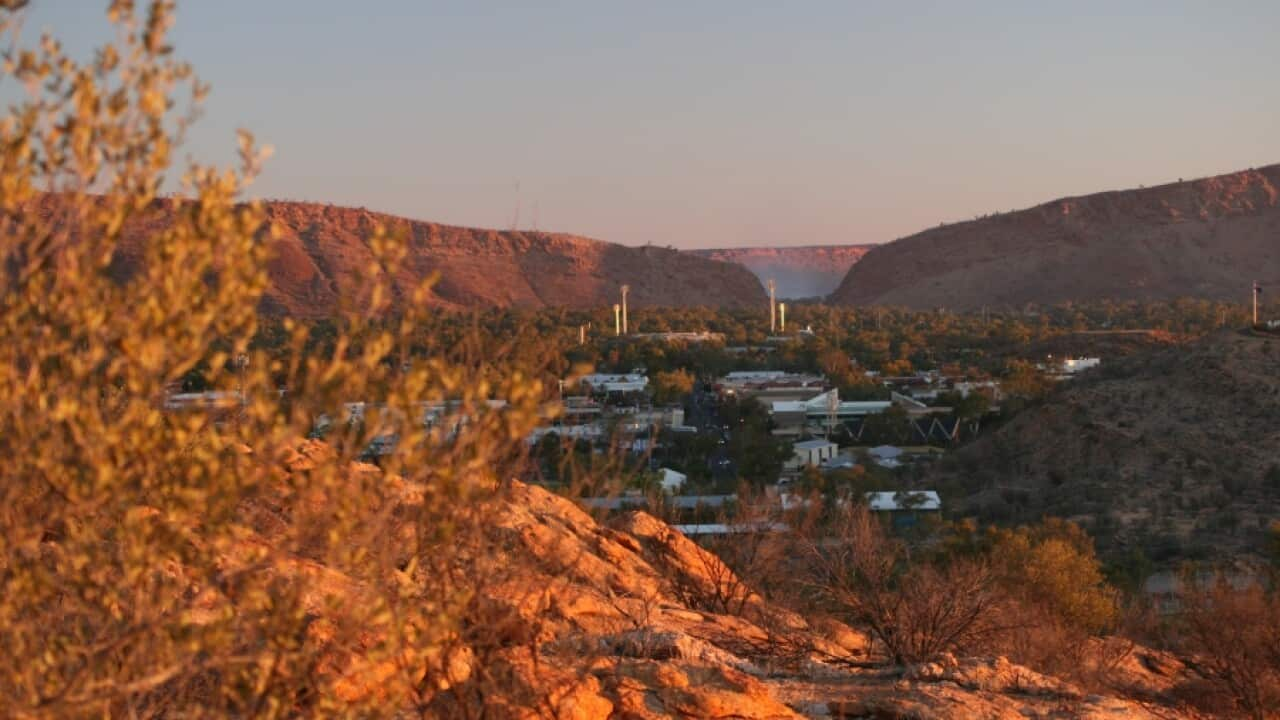As some residents prepare to sue to NT Government over their management of , one Traditional Owner says responsibility for the current unrest lies with the Commonwealth.
A recent meeting, called 'Save Alice Springs', saw residents, business owners and local Aboriginal leaders come together to devise steps forward for the town.
The meeting only lasted 20 minutes before protests broke out, but established broad support for a class action against the NT Government for $1.5 billion dollars of compensation.
Intervention to blame for current unrest: Traditional Owner
Arrernte Traditional Owner Graeme Smith can understand the residents' frustration.
Mr Smith, who is CEO of Lhere Artepe, the peak body for Alice Springs traditional owners said his organisation, which owns businesses in the town, has been targeted.
“We are a major contributor to the economy so we are getting broken into too,” he said.
But he believes that a class action is not the right avenue.
"Suing the NT Government, if you play that out you'd probably figure out that you'd lose a bit of money, and lose [the case]."
Rather, he believes the Commonwealth is accountable, and traces the current issues back to the NT Intervention.
Abandoned promises turned areas into 'ghost towns'
In 2007, the Howard government compulsorily acquired township leases over previously Aboriginal-owned land.
Mr Smith says promises that were made when leases were acquired by the Commonwealth were abandoned.
"Communities are turning into outstations, outstations are turning into ghost towns.

A member of the Australian Army stands at the entrance to Mutitjulu at the beginning of the rollout of the NT Intervention in July, 2007. Credit: Ian Waldie/Getty Images
"We service four states... that's a federal government issue. That's the settings they've put us under."
New three-month restrictions 'discriminatory'
Currently, Alice Springs is under tough new alcohol restrictions, imposed by the federal and territory governments last week.
For three months, the sale of takeaway alcohol will be banned on Mondays and Tuesdays, and bottle shops can only open between 3:00pm and 7:00pm on other days, while reduced takeaway alcohol trading on Sundays already exists.
One alcohol purchase per person/per day has also been introduced under the Territory’s existing 'Banned Drinker Register' laws.

A view of houses in the Hidden Valley town camp near Alice Springs. Source: AAP / Dan Peled/AAP Image
Mr Smith says the restrictions are "discriminatory".
"We have been through many liquor restrictions," he said.
"They're only really targeting one cohort of people. It's according to your residential address on your license.
"We think it's discriminatory, and we think there are better ways long term."

Lhere Artepe CEO and Arrernte Traditional Owner Graeme Smith. Credit: NITV
He hopes during the three-month restrictions, plans can be developed.
"We are calling for these management plans to be put into place, " he said.
NT Chief Minister Natasha Fyles told media on Wednesday that the plans would not contain " knee -jerk reactions" and would empower "Indigenous leadership for remote communities".
"We have made the tough decisions around alcohol... but this is a situation about how they want to manage alcohol, and we need to listen to their leadership," she said.
She said the plans ensure that all community is heard and can determine "what is right for them" in regards to alcohol, service delivery and "generational change".

NT Chief Minister Natasha Fyles speaking to media on Wednesday. Credit: NITV
Luritja Controller to report to government
Alongside the restrictions, the government installed a Central Australian Regional Controller, Luritja woman Dorrelle Anderson.
Ms Anderson submitted a report on Wednesday to both governments on the state of Alice Springs and the path forward for the town.
Ms Fyles told said the report may not be made public for many days.
"This report is not the end of it, this report is the beginning of that journey," she said.
In response to questions regarding the alleged class action, Ms Fyles said government would respond as they deem appropriate at the time.
"What we need is for community to come together and to understand there is no quick fix," she said.
"If we are all working together, we will overcome these challenges in Alice Springs, Central Australia and more broadly in the NT."






